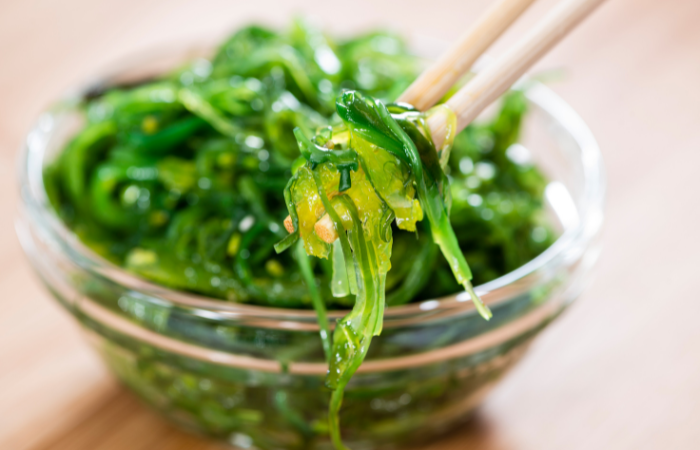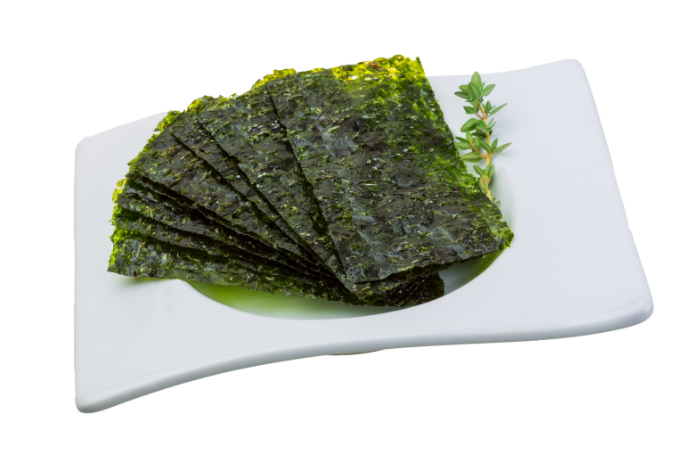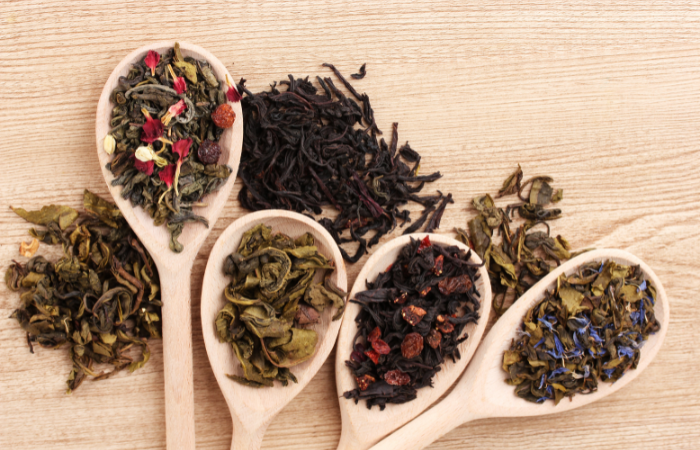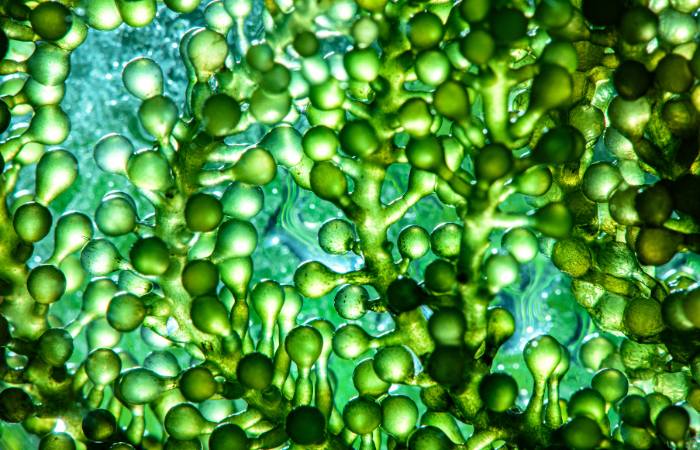
Unfortunately, in our modern world, people’s hormones are constantly under attack. From the food we eat, the water we drink, environmental toxins, pollution, cleaning products, birth control, BPA in plastics, the list goes on. Consequently, there is a vast increase of hormonal issues in our population, particularly to do with our thyroid. Generally, people do not consume adequate sources or amounts of iodine. Plus, their hormones are out of whack from all the toxins in the external world, not a good combination!
Iodine plays a major role in the thyroid gland producing thyroid hormones. Our bodies don’t produce iodine and need to get it from our diet. Some of the best plant-based, or vegan, sources of iodine come from the sea, in the form of sea vegetables. Our soil does contain varying amounts of iodine. However, with commercial agriculture consistently depleting our soils, and stripping them of vital nutrients, there’s less of this mineral present. Sulfur is another mineral a lot of people are deficient in, take a look at this post I wrote for more information.
RDA For Iodine
The RDA for iodine, according to the Food and Nutrition Board at the Institute of Medicine of the National Academies, varies depending on age. For men and women over the age of 14, the RDA is 150 mcg. For women who are pregnant, this is 220mcg. Women who are lactating require at least 290 mcg.
I want to insert a little side-note here, many doctors and nutritionists argue how these RDA’s are insufficient. Furthermore, for the majority of the nutrients, if you want to thrive and not just survive, you need much more than what is recommended. This is different for each nutrient, as some in too high amounts can have adverse health effects. Just keep this in mind and do some research of your own. Sadly, we live in world where there is a lot of money to be made in us being sick. As a result, a healthy & thriving individual is not a customer, and no money is made off them.
Disclaimer: This post contains affiliate links. If you use these links to make a purchase, I will earn a small commission at no additional cost to you. Read this Affiliate Disclosure for more information. Thank you.
What is Iodine?
In the first place, what is iodine? It is an essential trace mineral, naturally present in some foods. Iodine is a key player for the thyroid hormones thyroxine (t4) and triiodothyronine (t3) and the thyroid-stimulating hormone thyrotropin (tsh). Thyrotropin is secreted by the pituitary gland, that controls thyroid hormone production and secretion. Therefore, it protects the body from hypothyroidism, underactive thyroid, and hyperthyroidism, overactive thyroid.

In fact, our thyroid is basically the command center for our hormonal system, it regulates numerous biochemical reactions in our bodies. This includes; determining metabolic activity, proper central nervous system and skeletal development for infants and fetuses in the womb, regulates our heart rate and digestive functions. It’s kind of a big deal! With this in mind, let’s go into the exact plant-based sources of iodine, safety precautions, and more!
Sources of Iodine

Oftentimes, when people think of iodine, they associate it with iodized salt. This is a source of iodine, but it’s also important to note that high levels of salt puts your health at risk. Too much salt may increase blood pressure and contribute to stomach cancer. Salt is in so many foods in our diet, especially processed food. It hides in unsuspecting places and we don’t realize the high amounts we are intaking. Thus, we probably don’t want to rely on iodized salt too heavily or as our only source.
Another source of iodine is said to be dairy milk. The iodine in this dairy milk is not naturally found in it, but instead from the iodine containing teat disinfectants. The teats are sprayed and dipped with this stuff, which then drips into the milk. Eww! I get this nasty image in my head with this one! How about we look elsewhere for iodine! What other sources are out there?
At last, the best plant-based sources of iodine are sea vegetables! There is a variety of them so you have options. Seaweed is one of the best natural sources of iodine and includes kombu, kelp (see my caution on this one below), wakame, arame, dulse, Irish moss, nori amongst others. Dr. Michael Greger M.D, who runs nutritionfacts.org, notes that some of these contain high amounts iodine, and you do not need to eat them everyday. Due to iodine storing in the thyroid, you can take it intermittently. A couple times a week he recommends, in small amounts should be fine. Sea vegetables make a great addition to soups and broths!
Dr. Greger recommends the following varieties of seaweed a few times a week:
- 2 sheets of dried Nori
- 1 tsp of Dulse Flakes
- 1 tsp of dried Arame
- 1 tbsp of Seaweed Salad

Personally, when I took whole-food supplements with insufficient levels of iodine (I don’t currently) I ate dulse flakes. I would blend them up small and add them like garnish on top of many of my meals. I enjoy the taste of dulse, but not everyone likes the seaweed flavor, so you may have to sneak it in to your meals for others 😉
Precautions on Iodine Sources
Some seaweeds you should use with caution, as they may have too high of an iodine content. Such is the case with kelp. If you consume too much iodine, this can lead to hyperthyroidism. I actually bought this kelp tincture, and in one single drop, it contains 800mcg of iodine! Tis’ a bit high I might say! A hyperactive thyroid gland manifests early on as a racing heart, trouble sleeping, anxiety, and weight-loss. Therefore be cognizant of your intake. In the same way, stay away from Hijiki seaweed. Hijiki may contain too much arsenic in the toxic, inorganic form.
It may be wise to work with your health-care practitioner when you take iodine in the beginning. Perhaps, test your levels to ensure you are taking safe amounts. You are able to check your own levels of iodine too. There are test kits you can purchase. Additionally, there’s Iodine Patch Test’s available to buy that measures how quickly your body absorbs iodine through your skin. Further, ensure that your iodine will not interfere with any medications you take.
Lastly, but certainly not least, if you have either hypothyroidism or hyperthyroidism proceed with caution, or just don’t, take large amounts of iodine. In this case, definitely speak to your doctor first!
Latest Posts:
- What Grief Has Taught Me
- Unique Gift Ideas For The Spiritual Person In Your Life
- Healthy Chocolate Pudding Recipe
- My Weird Everyday Health Habits
- 6 Easy Ways To Enter The Present Moment
Sources:
https://www.healthline.com/nutrition/what-happens-if-you-eat-too-much-salt#long-term-effects
https://nutritionfacts.org/video/the-healthiest-natural-source-of-iodine/





I had no idea you could get iodine from so many places. This is a great guide.
Thanks so much about all this information about iodine. I did not know that we needed it.
So much valuable information here! I appreciate you sharing these sources of iodine. I wasn’t aware of some of them.
Iodin seems very important to the body, I had no idea. Thanks a lot for the information, this is great.
As who loves vegetarian dishes, I’m always looking for ways to make sure I’m getting all the nutrients my body needs, and iodine is definitely an important one. I appreciated your detailed breakdown of the different types of iodine-rich foods, as well as your explanation of how iodine deficiency can affect our health.
It’s good to know there are plant sources for getting more iodine. This was helpful to read, thank you.
I got to know different aspects and sources of iodine here. Very informative read indeed.
This is very interesting, I did not know much about iodine in the diet. I love seaweed and often visit our Asian supermarket, you can buy packets there that have been frozen
We eat a lot of seaweed in our household, so we have always talked about how we surely get some good amounts of iodine! Good to know some other sources.
Oh what wonderful information! I eat nori quite often..its part of my main diet actually! So happy to be reading this right now!
I just read your article about plant-based sources of iodine and I found it incredibly informative! The way you laid out the information made it easy for me to understand, and I appreciate the specific examples you gave for each category of food. I’ll definitely be referring back to this in the future.
I only know iodine from like, science class in highschool. I saw some tiktok of a person putting it on their skin to help their skin, so I found this blog post really interesting in iodine and why you’d want to know about it!
I do love seaweed in salads and dried seaweed so it helps they have plenty of iodine. I need to stock up as we don’t eat them often enough.
Love this and I had no idea that iodine played such an important role n the thyroid and it is crazy how much the thyroid does for the body overall so this is especially important! Thank you or sharing!
This post is so interesting! I feel I don’t eat enough meat. So I need to make sure I get all the nutrients I need. Thanks for sharing!
This is a great blog post! I love seaweed in almost everything 🙌🏻
I had no idea that iodine was such an important mineral for our bodies!